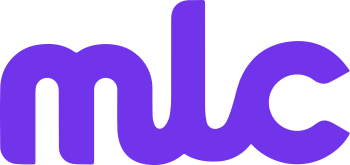The Importance of High-Quality Medical Device Translation Services
In the fast-evolving world of medical devices and pharmaceuticals, ensuring accurate and reliable communication across global markets is essential. Medical device translation services play a crucial role in maintaining compliance with stringent regulatory standards while enhancing patient safety and healthcare outcomes. This article dives deep into why professional translation services are indispensable for the medical and pharmaceutical industries.
This comprehensive guide explores the nuances of medical device translation, its importance in ensuring regulatory compliance, and its role in enhancing the global reach of healthcare solutions. If you’re involved in manufacturing, distributing, or regulating medical devices, this article will help you understand the challenges and solutions in achieving impeccable translations.
Contents of this article
- What Is Medical Device Translation?
Medical device translation involves the process of translating clinical and technical documentation, such as instructions for use (IFUs), manuals, and labels, into different languages. These translations must adhere to strict regulations and ensure patient safety.
- Why Are Translation Services Crucial in the Medical Industry?
Accurate translations ensure compliance with global regulatory standards, such as ISO 17100 and ISO 9001, and safeguard patient safety by delivering precise instructions in the target language.
- What Are the Challenges in Translating Medical Device Documents?
Understanding complex medical terminology, managing tight deadlines, and adhering to stringent regulatory requirements pose significant challenges in medical device translations.
- The Role of Regulatory Compliance in Medical Translations
Translations must comply with ISO-certified standards, including ISO 17100, and adhere to GDPR and local regulations to ensure confidentiality and quality.
- How Do Qualified Translators Ensure High-Quality Medical Translations?
Qualified translators, often native speakers with expertise in life sciences, ensure accurate translations by leveraging their deep understanding of medical terminology and technical writing.
- The Importance of Multilingual Translation for Global Markets
Reaching global markets requires translating medical device content into over 200 languages while maintaining consistency and accuracy.
- Why Is Technical Writing Essential in Medical Translations?
Technical writing ensures clarity and precision in medical device documentation, enhancing usability and compliance.
- How Do Project Managers Enhance the Translation Process?
Experienced project managers streamline translation projects by coordinating linguists, adhering to deadlines, and ensuring quality assurance.
- What Are Pharmaceutical Translation Services?
Pharmaceutical translation services involve translating clinical trial data, patient information leaflets, and other pharmaceutical documents to meet regulatory standards and ensure patient safety.
- Tips for Choosing the Right Medical Translation Service
Learn how to identify industry-leading translation companies that offer high-quality, ISO-certified services with a proven track record.
In-Depth Content
What Is Medical Device Translation?
Medical device translation refers to the specialised process of translating technical documents, training materials, and IFUs into various languages. Translating medical device documents requires not only linguistic skills but also an in-depth understanding of regulatory requirements and medical terminology. These translations are critical for ensuring that healthcare professionals and patients can use medical devices safely and effectively.
Why Are Translation Services Crucial in the Medical Industry?
High-quality translation services are indispensable in the medical industry for several reasons:
- Regulatory Compliance: Translations follow stringent regulatory standards such as ISO 17100 to ensure global conformity.
- Patient Safety: Accurate translations reduce the risk of errors in instructions, thereby safeguarding patient safety.
- Global Reach: Translation services enable manufacturers to expand into global markets by providing multilingual documentation.
What Are the Challenges in Translating Medical Device Documents?
Translating medical device documents is no easy task. Challenges include:
- Technical Terminology: Medical terminology is complex, requiring attention to detail and expertise in the subject matter.
- Stringent Deadlines: Projects often need to be completed promptly without compromising quality.
- Regulatory Standards: Compliance with local and international regulations, such as the EU’s stringent regulatory requirements, is non-negotiable.
The Role of Regulatory Compliance in Medical Translations
Regulatory compliance is a cornerstone of medical device translations. ISO 17100 certification ensures that translations meet the highest quality standards. Additionally, adherence to GDPR guidelines guarantees the confidentiality of sensitive information.
How Do Qualified Translators Ensure High-Quality Medical Translations?
Qualified translators are essential for achieving accurate translations. They bring expertise in the following:
- Medical Terminology: Understanding the terminology used in clinical and technical documents.
- Linguistic Skills: Native speakers with linguistic proficiency deliver impeccable translations.
- Subject Matter Expertise: Translators with life sciences backgrounds provide insights into medical and pharmaceutical contexts.
The Importance of Multilingual Translation for Global Markets
Global markets demand multilingual translations to cater to diverse populations. High-quality translations in over 200 languages help manufacturers adhere to international standards while reaching a broader audience.
Why Is Technical Writing Essential in Medical Translations?
Technical writing plays a pivotal role in medical translations by ensuring clarity and usability. Well-structured manuals and IFUs reduce the risk of misinterpretation and enhance user compliance.
How Do Project Managers Enhance the Translation Process?
Project managers are integral to seamless translation processes. They ensure:
- Adherence to Deadlines: Timely delivery without compromising quality.
- Coordination: Efficient collaboration between linguists, translators, and subject matter experts.
- Quality Assurance: Rigorous checks to certify translations meet the highest standards.
What Are Pharmaceutical Translation Services?
Pharmaceutical translation services involve translating critical documents such as COAs, clinical trial reports, and patient information leaflets. These translations ensure that pharmaceutical products meet regulatory standards and are safe for patient use.
Tips for Choosing the Right Medical Translation Service
When selecting a translation company, consider the following:
- ISO Certifications: Ensure the company is ISO 17100 and ISO 9001 certified.
- Expertise: Look for subject matter experts with experience in the medical industry.
- Reputation: Choose industry-leading providers with a proven track record.
Summary Of Key Takeaways
- Translation Services Are Essential: High-quality translations ensure regulatory compliance, patient safety, and global market reach.
- Qualified Professionals Are Key: Native speakers with subject matter expertise deliver accurate translations.
At My Language Connection, we understand that effective communication is the cornerstone of medical progress. Our specialised medical translation services are more than just converting words—they’re about creating understanding across cultural and linguistic boundaries.

